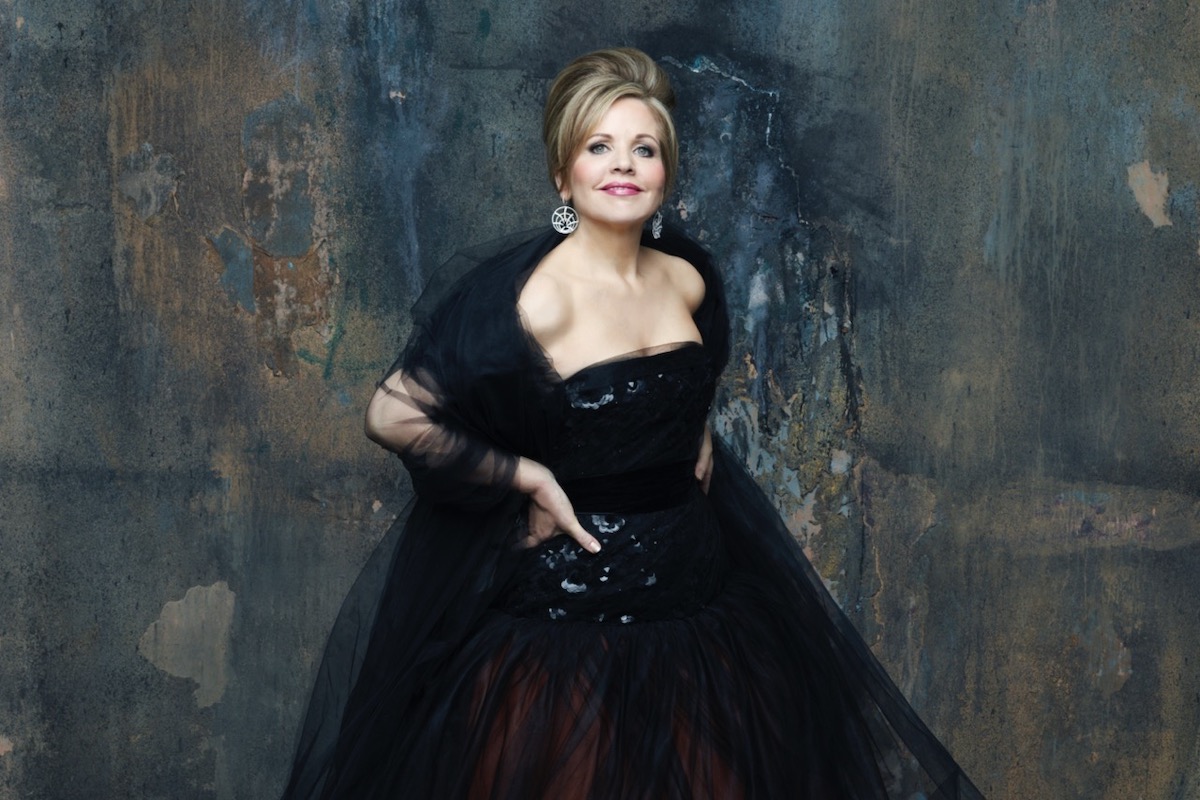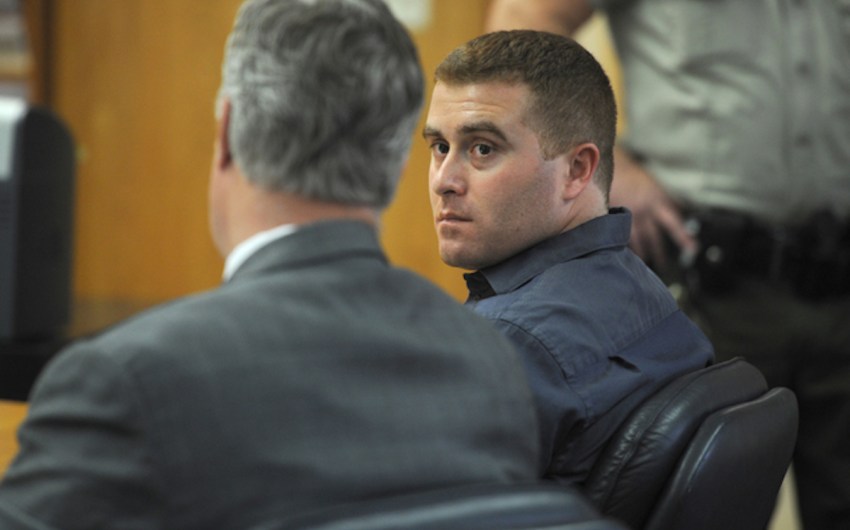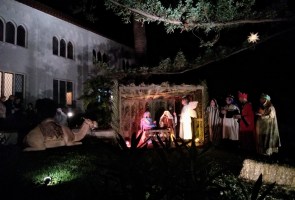A Classic Voice with Range and a Cause
Supreme American Soprano Renée Fleming Returns to Santa Barbara, Supporting Special Project 'Voice of Nature'

Last month, premier soprano Renée Fleming found herself on familiar ground, at the Kennedy Center in Washington, D.C. Fleming, 64, who boasts the sobriquet “America’s Diva,” has long had close ties with the Kennedy Center. On this celebrated night, however, the spotlight was especially august, as she accepted the official and coveted medal as a Kennedy Center honoree, in a group of honorees including pop cultural side of the fence — Queen Latifah, Dionne Warwick, Billy Crystal and Sir Barry Gibb.
Fleming, whose career entailed decades in a prime position at the Metropolitan Opera, starting in 1991, is one of the reigning opera artists in America and beyond. Her musical world should also be defined as “opera and beyond,” given her résumé, which has stretched into collaborations with jazz and pop musicians from Brad Mehldau and Bill Frisell to Paul Simon, Elton John, and Sting. Her list of high-stakes venues includes Buckingham Palace and the MetLife Stadium in New Jersey, where she sang the national anthem for the 2014 Super Bowl, the first opera singer to own that coveted role. She gets around, this household name-brand American soprano.
Fortunately for Santa Barbara audiences, Fleming also gets out west. Her handful of performances here over the years included a special intimate Hahn Hall recital in 2017, honoring the Music Academy’s 70th anniversary festival. She will make her first post-pandemic stop in town on February 1, at The Granada Theatre, (Editor’s Note: Due to water damage at the Granada, this performance has been moved to the Arlington Theatre) a plum event in the UCSB Arts & Lectures series.
Tapping into her extra-musical interests for advocacy and education, her time in Santa Barbara will include a stop at the Santa Barbara Museum of Art on February 2, to speak about the critical connective tissue between health and the arts — “the intersection of arts, health, and neuroscience” — part of her ongoing Music and Mind project. The event is co-sponsored by association with Cancer Foundation of Santa Barbara, Cottage Health and the Foundation for Cottage Rehabilitation & Goleta Valley Cottage Hospitals, and UCSB SAGE Center for the Study of the Mind. Along with Fleming, the panelists are Nicole Moayeri, MD, Neurosurgeon, Cottage Health SB, Jonathan Schooler, UCSB Department of Psychological and Brain Sciences and Daniel Levitin, Neuroscientist, author of This Is Your Brain On Music.
Born in Indiana, Pennsylvania, and raised near Rochester, New York, Fleming is of Czech blood and the daughter of music teachers. Her musical rearing included jazz and other genres before settling into the operatic path, studying at the Eastman School and Juilliard.
Fleming’s most recent album projects provide a revealing window on her range of work and interests. A compendium of “greatest hits” during her three decades at the Met unfolds in Greatest Moments at the Met. That Decca Classics album from 2022 was released as Fleming appeared in the acclaimed Met production of Kevin Puts’s The Hours, also featuring Kelli O’Hara and Joyce DiDonato (who brought her ambitious Seeds of Hope project to the Granada a year ago).
But more to the point of her current interests and the focus of the upcoming Granada program, 2022 also saw the release of Fleming’s diverse Voice of Nature: The Anthropocene, which earned the Grammy for Best Classical Solo Vocal Album last year. A themed song set, concerning environmental issues and inspirations (like DiDonato’s project), the album’s program is a wide-ranging selection of pieces, from the classical repertoire of Fauré, Grieg, Liszt, and Handel to music from such prized contemporary American composers as Carolyn Shaw, Nico Muhly, and jazz-contemporary sensation Maria Schneider. From other stylistic quarters, she includes Jerome Kern’s “All the Things You Are” (a standard of Broadway and the jazz “real book”), Björk, and Howard Shore’s music from The Lord of the Rings. Puts’s “Evening” caps it off.
Last week, we connected with Fleming for an interview and update on her art and life in motion.
Welcome back to Santa Barbara. Do you have particular memories or feelings about performing in this city by the sea?

It’s amazing to me that, basically in the middle of paradise, you also have this historic jewel of a theater, the Granada. It’s always fantastic to sing here.
Just last month, your long list of awards and accolades expanded to include the Kennedy Center Honors. Did this honor have a particular significance for you?
The Kennedy Center Honor has tremendous significance for me. In the U.S., I think of it as the pinnacle award for a performer, because it reaches across all of the performing arts. It’s an important statement of our country’s cultural achievement, recognizing genres and disciplines that offer something to everyone, at our national cultural center.
In the ranks of musical contexts you have been engaged in for many years, in opera and beyond, does the act of giving a recital still represent something special and personal — and maybe even challenging — for you? And maybe even more so in the post-COVID era?
Recitals offer a unique kind of intimacy and connection with the audience. It can be challenging, because it’s very exposed. But I enjoy the responsibility of creating a vision with just one other artist, and constructing my own narrative, taking the audience on a journey, and speaking directly to them. And it gives me the chance to engage with issues that concern me deeply — for instance, the climate crisis in this program.
And you’re right — in the wake of COVID, any opportunity for people to gather around the performance of music has become more powerful. I have learned in my arts and health work that the brain waves of audience members actually align with each other during the shared experience of music. And song recitals actually began in salons, small groups of people gathering in homes to share music and poetry.
I see that the key reference point of your recital tour is your fascinating album Voice of Nature: The Anthropocene, celebrating and also lamenting the state of nature through music. The program ranges from Fauré to such strong current composer voices as Caroline Shaw, Kevin Puts, Maria Schneider, Björk, and others. Was this an especially passion-driven project for you?
Absolutely. Connecting with nature has always been important to me, but that need was really brought home to me during the pandemic. Long walks outside were how I maintained my emotional equilibrium during the shutdown. At the same time, I was seeing so much distressing news about the climate crisis, wildfires, floods, the extinction of species. That’s when I had the idea to record an album focused on our relationship to nature — how it has inspired us, and how our activity has put it in peril.
I’ve also just been enjoying your Greatest Moments at the Met album — a wonderful survey and listen. Does it give you a sense of nostalgic overview to hear the album and remember the specific circumstances of those performances? And were you central to the selection process of the pieces included?
I was very closely involved, selecting every piece in Renée Fleming: Greatest Moments at the Met. It was a detailed process of elimination, even though this is a double album. I have performed at the Met so often, and their recording capabilities are unmatched, so there is a wealth of material.
In addition to live performances of my central repertoire, I wanted to include arias and scenes that don’t exist on other recordings. It was important to me to arrange the material chronologically, to convey the development of my voice and repertoire. It was so nostalgic, to look back at especially meaningful onstage moments for me, for instance, Eugene Onegin, with the late Dmitri Hvorostovsky. He was unforgettable in that role.
You will be bringing your Music and Mind project to the Santa Barbara Museum of Art the day after your recital. Can you elaborate on the origin and objective of the project?
My advocacy really began with a chance meeting with Dr. Francis Collins, director of the National Institutes of Health, at a dinner party. I had just been appointed artistic advisor to the Kennedy Center, and I asked him if we might collaborate, to provide a public platform for the science supporting the power of the arts for human health. That initiative, which also involved the NEA, inspired me to create my own program about this material, which I offer to presenters wherever I tour for concerts.
The goal is to amplify the amazing discoveries and research that is happening right now. And in April, Viking will be publishing Music and Mind: Harnessing the Arts for Health and Wellness, a new anthology I’ve edited, with contributions from dozens of the scientists, artists, and thought leaders at the cutting edge of this field.
I’ve always believed in the integral relationship of music and health — mental and even physical. I even feel a withdrawal sensation if I go for very long without music in the air, live or otherwise. Is this an area of interest triggered by any particular catalyst in your life and career?

I think my first interest dates back to when I was experiencing somatic pain, and I became aware of the mind-body connection. Once I understood how something as intangible as stage fright or anxiety can have specific health impacts, it was easy to appreciate how arts experiences, both for performers and audiences, can contribute to wellness. And as I learned more, speaking with researchers and reading, it developed into a passion.
I appreciate that you have extended your musical reach into special projects with musicians from other corners of the musical universe, including Brad Mehldau and Bill Frisell in the jazz zone, along with pop worldly interactions with Sting, Paul Simon. Have you always had your ears attuned to music beyond opera and musical theater? Is diversity important to your musical diet — as listener and performer?
I actually began my performing career in jazz, singing professionally in nightclubs when I was in college, and I considered going that route when I was offered an opportunity to tour with Illinois Jacquet. One of the great things about growing up in America was that I was exposed to, and enjoyed, all kinds of music: classical, pop, rock, folk, jazz, musical theater. Both as a listener, and as a performer, I follow my musical instincts wherever they lead, and I’ve never let genre boundaries really restrict that.
Do you feel that this is a healthy, creative period in your long career, with a strong legacy behind you and inviting projects in the offing?
I have more projects ahead than I can count. I often marvel at how many artists were vital and productive over long life spans, even producing masterpieces in later life. I am not slowing down, and maybe this is just another example of what the arts and creative engagement can offer us all. I’m also dedicated to helping young singers, supporting their artistic development through my work with the Aspen Music Festival and School, and my program SongStudio at Carnegie Hall.
In many ways, the path for young artists today, with the changed media landscape, is more difficult than it was for me. But one of the greatest traditions of classical music is that established artists pass what they’ve learned to the next generation of performers.
Premier Events
Sat, Dec 21
11:00 AM
Santa Barbara
Mosaic Makers Market – Holiday Weekend Market
Sun, Dec 22
11:00 AM
Santa Barbara
Mosaic Makers Market – Holiday Market Finale
Wed, Dec 25
6:00 PM
Santa Barbara
FREE Contra Dance X-mas Day💃Corwin & Grace band6-9
Sat, Dec 21
11:00 AM
Santa Barbara
Mosaic Makers Market – Holiday Weekend Market
Sat, Dec 21
12:00 PM
Santa Barbara
Gift Wrapping with Life Chronicles
Sat, Dec 21
2:00 PM
Santa Barbara
State Street Ballet’s 30th Anniversary Production of ‘The Nutcracker’
Sat, Dec 21
4:00 PM
Santa Barbara
Wine + Painting Workshop
Sat, Dec 21
5:00 PM
Santa Barbara
The Rhythm Industrial Complex: Live at Fox Wine Co
Sat, Dec 21
5:00 PM
Santa Barbara
LET IT GLOW Winter Solstice on State St.
Sat, Dec 21
5:15 PM
Santa Barbara
The Longest Night Memorial
Sat, Dec 21
5:30 PM
Santa Barbara
First United Methodist Church Living Nativity
Sat, Dec 21
6:00 PM
Santa Barbara
Captain Fatty’s Ugly Xmas Sweater Party
Sat, Dec 21
6:30 PM
Santa Barbara
Ugly Sweater Singles 30s and 40s Party!
Sat, Dec 21 11:00 AM
Santa Barbara
Mosaic Makers Market – Holiday Weekend Market
Sun, Dec 22 11:00 AM
Santa Barbara
Mosaic Makers Market – Holiday Market Finale
Wed, Dec 25 6:00 PM
Santa Barbara
FREE Contra Dance X-mas Day💃Corwin & Grace band6-9
Sat, Dec 21 11:00 AM
Santa Barbara
Mosaic Makers Market – Holiday Weekend Market
Sat, Dec 21 12:00 PM
Santa Barbara
Gift Wrapping with Life Chronicles
Sat, Dec 21 2:00 PM
Santa Barbara
State Street Ballet’s 30th Anniversary Production of ‘The Nutcracker’
Sat, Dec 21 4:00 PM
Santa Barbara
Wine + Painting Workshop
Sat, Dec 21 5:00 PM
Santa Barbara
The Rhythm Industrial Complex: Live at Fox Wine Co
Sat, Dec 21 5:00 PM
Santa Barbara
LET IT GLOW Winter Solstice on State St.
Sat, Dec 21 5:15 PM
Santa Barbara
The Longest Night Memorial
Sat, Dec 21 5:30 PM
Santa Barbara
First United Methodist Church Living Nativity
Sat, Dec 21 6:00 PM
Santa Barbara
Captain Fatty’s Ugly Xmas Sweater Party
Sat, Dec 21 6:30 PM
Santa Barbara


























You must be logged in to post a comment.